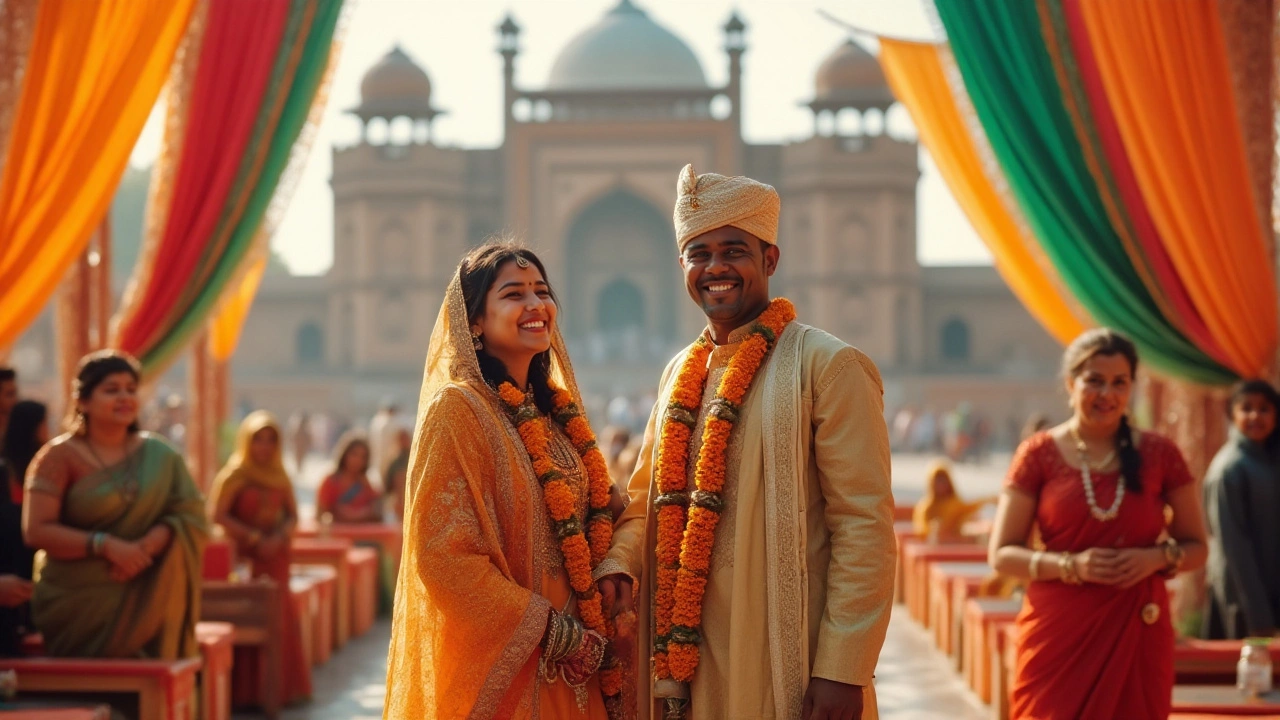Tourist Marriage in India – Your Quick Guide
If you’re traveling to India and want to tie the knot, you’re not alone. Destination weddings are popular, and the process is simpler than many think. This guide walks you through the basics: who can marry, what papers you need, and how to keep everything legal.
Who Can Get Married in India?
Any adult who is not already married can register a marriage in India. Both Indian citizens and foreign nationals are welcome, as long as they meet the legal age – 21 for men and 18 for women. You also need the free consent of both parties. If either partner has been married before, a divorce decree or death certificate must be presented.
Key Documents You’ll Need
Gather these items before you head to the registrar:
- Valid passport with a recent visa.
- Birth certificate or passport showing date of birth.
- Proof of residence in India (hotel invoice, rental agreement, or a letter from a local host).
- Affidavit stating you are legally free to marry. This can be notarized at your embassy or a local notary.
- Passport‑size photos (usually two for each partner).
- If you’re using the Special Marriage Act, you’ll need a “No Objection Certificate” from your embassy.
All foreign documents must be attested by the Indian Embassy or Consulate in your home country, then re‑attested by the Ministry of External Affairs in India. This double attestation may sound tedious, but it prevents future hassles.
Choosing the Right Marriage Law
India offers two main routes:
- Religious ceremonies – If you follow a religion that has a recognized marriage act (Hindu, Muslim, Christian, etc.), you can register under that act. The ceremony can happen in a temple, church, or mosque, followed by a simple registration at the local office.
- Special Marriage Act (SMA) – Ideal for inter‑faith or same‑nationality couples who want a civil ceremony. The SMA requires a 30‑day notice period, during which the registrar posts your intent to marry. After the notice, you can schedule the ceremony at the registrar’s office.
Both routes end with a legal marriage certificate that works for visa applications, bank accounts, and property matters.
Step‑by‑Step Process
1. Decide on the law – Choose religious or SMA based on your preferences. 2. File the notice – For SMA, submit the 30‑day notice at the local marriage registrar. For religious marriages, inform the priest or officiant and the registrar. 3. Collect documents – Have all passports, visas, affidavits, and attestations ready. 4. Attend the ceremony – On the chosen date, both partners must be present with two witnesses. 5. Register the marriage – The registrar records the marriage and issues a certificate on the same day or within a few days. 6. Apply for a spouse visa – Use the certificate to apply for an Indian visa for the foreign spouse (X‑visa or Entry Visa).
Common Pitfalls and How to Avoid Them
Don’t wait until the last minute to get documents attested – the process can take weeks. Make sure both passports are valid for at least six months beyond your planned wedding date. If you’re using the SMA, remember the 30‑day public notice; any legal objection can delay the ceremony. Finally, keep copies of every document; officials often ask for originals and photocopies.
With a bit of planning, a tourist marriage in India can be a beautiful, legally sound experience. Follow these steps, stay organized, and enjoy your special day without unnecessary stress.

How Tourists Can Legally Marry in India: A 2025 Guide
Exploring the possibility of a tourist getting married in India involves understanding the legal framework, the documentation required, and the cultural nuances involved in the process. India presents a unique blend of tradition and modernity in weddings, attracting many international couples. The process has been simplified but still requires attention to detail for a seamless experience. This guide uncovers the essential steps and tips for tourists who wish to tie the knot on Indian soil.